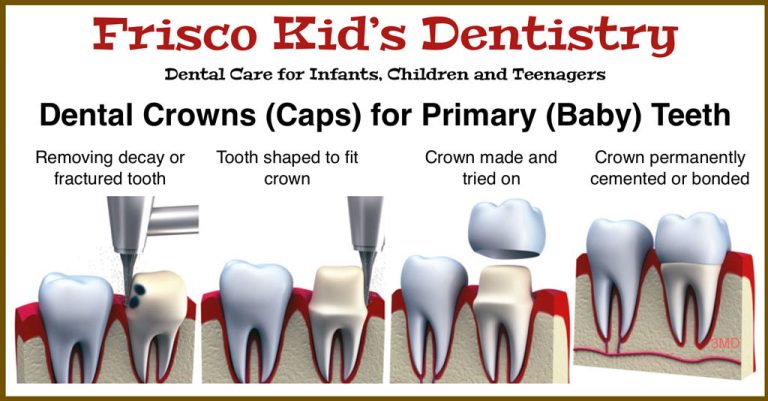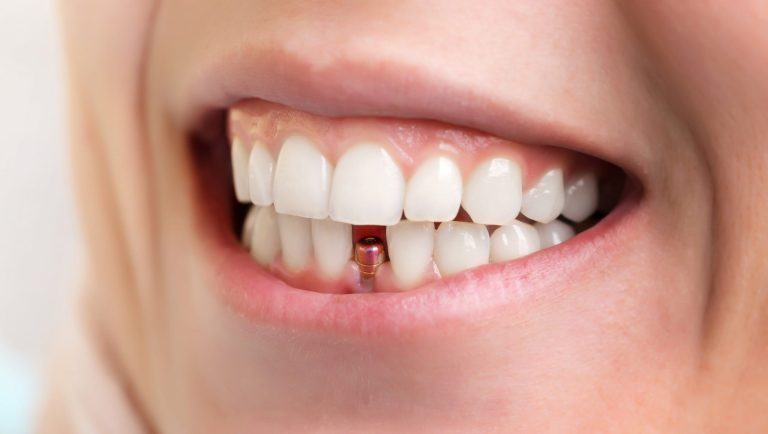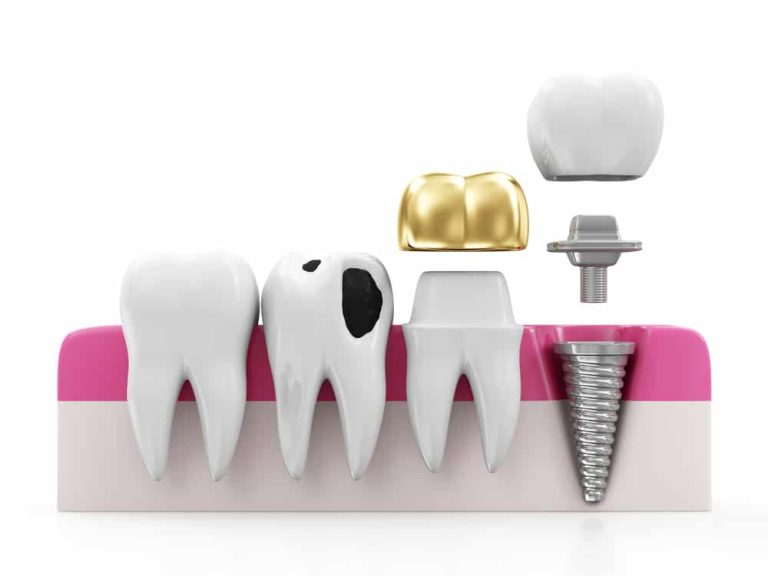Dental Crown Pain When Biting: How to Find Relief
Last Updated on 6 months by DR. ALBIN SIPES
Dental crown pain when biting can be caused by a variety of factors, such as a loose crown, a misaligned bite, or an underlying tooth infection. This pain can range from mild discomfort to severe pain, and it may worsen when eating or biting down on hard foods.
It is important to seek immediate dental care if you are experiencing persistent or severe pain when biting with a dental crown, as it may indicate a problem that needs to be addressed by a dentist. Understanding the possible causes of dental crown pain when biting can help you make an informed decision about seeking the appropriate treatment.
Common Causes Of Dental Crown Pain
Dental crown pain when biting can be caused by a few common factors. Decay or damage to the natural tooth may lead to discomfort. If the dental crown doesn’t fit properly, it can cause pain while biting down. Sometimes, the nerve or pulp of the tooth can become irritated, resulting in pain.
Another cause of dental crown pain is a dental infection. These infections can cause inflammation and sensitivity in the affected tooth. If you are experiencing dental crown pain when biting, it is important to consult with your dentist to determine the underlying cause and find appropriate treatment.
Remember, maintaining good oral hygiene and regular dental check-ups can help prevent dental crown pain in the future.
Signs And Symptoms Of Dental Crown Pain When Biting
Dental crown pain when biting can be a concerning issue with several signs and symptoms. One common indication is experiencing sharp and localized pain while biting down. This discomfort can make it difficult to chew food properly. Another sign is sensitivity to hot or cold foods and beverages.
If you find yourself wincing or feeling a jolt of pain when you consume something hot or cold, it may be related to your dental crown. Additionally, swelling or inflammation around the affected tooth can be another indicator of crown pain.
If you notice any of these symptoms, it’s important to consult your dentist for an evaluation and potential treatment options. Proper care and attention can help alleviate the discomfort and ensure the longevity of your dental crown.
Consulting Your Dentist
Consult your dentist immediately if you experience dental crown pain while biting. Scheduling an appointment with your dentist is crucial in addressing this issue. During the visit, your dentist will carefully examine the dental crown and the affected tooth. They may also take x-rays to identify the underlying cause of the pain.
By seeking professional help promptly, you can address the issue and find relief from the discomfort. Remember that your dentist is the best person to guide you through the process and provide the necessary treatment. Don’t hesitate to reach out to them for assistance.
Finding Relief For Dental Crown Pain When Biting
To find relief for dental crown pain when biting, over-the-counter pain relievers can be helpful. Ice packs applied to the affected area can also reduce inflammation and alleviate discomfort. Using desensitizing toothpaste can help to minimize sensitivity and make biting less painful.
It is important to avoid hard or sticky foods that can put pressure on the crown and cause pain. Additionally, extreme temperatures in food and drinks should be avoided as they can also trigger discomfort. By following these tips, individuals can manage dental crown pain when biting and enjoy a more comfortable eating experience.
Getting A Dental Crown Replacement Or Adjustment
Dentist may suggest replacing the dental crown to alleviate pain when biting. Ensuring proper fit and bite alignment, adjusting the crown might solve the issue. In some cases, a temporary crown can be provided while waiting for the permanent one to be ready.
Treating Underlying Dental Issues
Dental crown pain when biting can often indicate underlying dental issues that need to be addressed. These issues may include treating decay or damage to the natural tooth. Resolving nerve or pulp irritation is also important in order to alleviate discomfort.
In some cases, managing dental infection may be necessary through root canal therapy or antibiotics. By identifying and treating these underlying problems, patients can find relief from the pain experienced when biting. It is crucial to seek the expertise of a dentist who can diagnose the specific issue and provide the appropriate treatment to ensure long-lasting oral health.
Taking a proactive approach to dental care can prevent further complications and promote overall well-being. Remember to visit your dentist regularly for check-ups and address any concerns promptly to maintain a healthy smile.
Practicing Good Oral Hygiene
Practicing good oral hygiene is essential to prevent dental crown pain when biting. Regular brushing and flossing are key habits to maintain. Using a soft-bristled toothbrush helps protect both the crown and natural teeth. Rinsing with antiseptic mouthwash keeps the mouth clean and free from harmful bacteria.
Regular dental check-ups and cleanings allow professionals to identify and address any issues before they worsen. By following these simple steps, you can ensure the longevity and functionality of your dental crown. Remember, prevention is always better than treating pain or discomfort after it arises.
Prioritize your oral health and take care of your dental crown by practicing good oral hygiene habits consistently.
Frequently Asked Questions Of Dental Crown Pain When Biting
Why Do I Experience Pain When Biting Down On My Dental Crown?
Pain when biting down on a dental crown can be caused by several factors, including a misaligned crown, an infection or tooth decay underneath the crown, a cracked tooth, or a high bite. It is important to consult with your dentist to determine the exact cause and find an appropriate solution for your discomfort.
How Can A Misaligned Dental Crown Cause Pain When Biting?
A misaligned dental crown can create an uneven bite, causing excessive pressure on certain areas of your teeth when you bite down. This can result in pain or discomfort. Your dentist can assess the alignment of your crown and make adjustments as necessary to ensure a proper fit and alleviate the pain.
Can An Infection Underneath A Dental Crown Cause Pain When Biting?
Yes, an infection or tooth decay underneath a dental crown can cause pain when biting down. Bacteria or decay can spread to the soft tissues around your tooth, leading to inflammation and discomfort. Your dentist will need to address the infection by removing the crown, treating the tooth, and providing appropriate dental care to relieve the pain.
What Should I Do If I Have A Cracked Tooth Underneath My Dental Crown?
If you suspect a cracked tooth underneath your dental crown, it is crucial to seek immediate dental attention. A cracked tooth can lead to pain when biting down and can even cause further damage if left untreated. Your dentist will assess the extent of the crack and recommend the appropriate treatment, which may include a crown replacement or root canal therapy.
How Does A High Bite Contribute To Dental Crown Pain When Biting?
A high bite, also known as an uneven bite, occurs when your dental crown does not align properly with your other teeth. This can cause excessive pressure on the crowned tooth and may result in pain when biting. Your dentist can adjust your bite by reshaping the crown or recommending other treatments to relieve the discomfort.
Conclusion
Overall, experiencing pain when biting down on a dental crown can be a distressing issue. However, it is important to remember that occasional discomfort can be normal in the initial stages after getting a dental crown. In most cases, this discomfort should fade away within a week or so.
If the pain persists or becomes more severe, it is crucial to consult your dentist as soon as possible. To prevent crown-related pain, it is important to maintain good oral hygiene, avoid biting down on hard or sticky foods, and never use your teeth as tools.
Regular dental check-ups can also help identify any potential issues early on. By following these guidelines, you can ensure the longevity and comfort of your dental crown. Remember, if you experience any pain or discomfort when biting down on a crown, don’t ignore it.
Seek professional advice to ensure that your smile remains healthy and pain-free for years to come.



